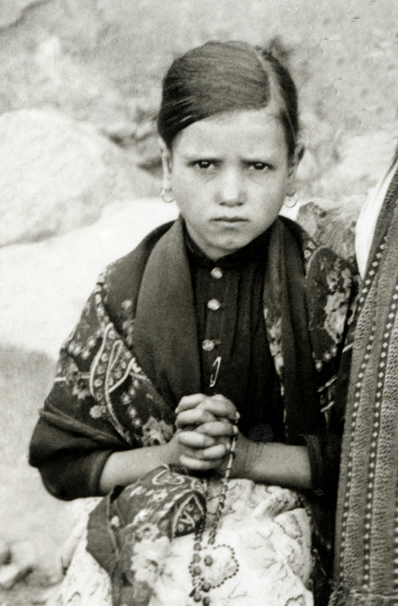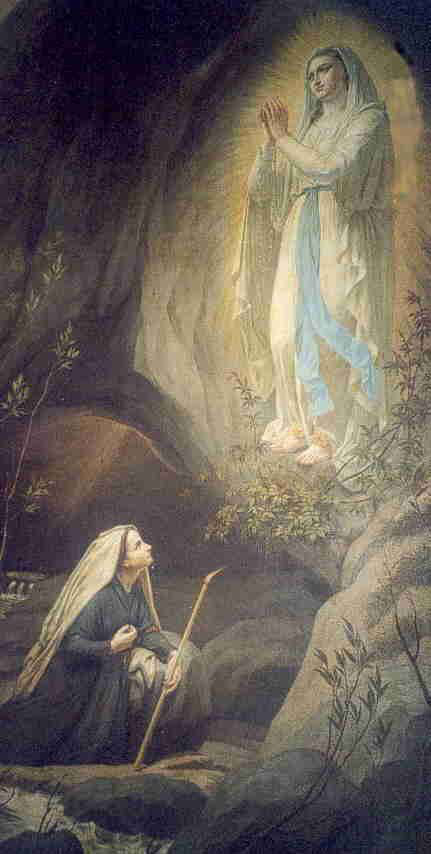Following the miracle of the sun, Jacinta complied with many requests for her intercessions. On one occasion she seems to have bilocated, in order to help a wayward youth find his way home. Lost in a stormy wood, he had knelt and prayed, and Jacinta appeared and took him by the hand, while she was at home praying for him.More HERE.
When she came down with influenza, she was removed from her family to a hospital a few miles away. She did not complain, because the Blessed Mother had forewarned her that she would go to two hospitals, not to be cured, but to suffer for the love of God and reparation for sinners. She stayed in the first hospital for two months, undergoing painful treatments, and then was returned home. She developed tuberculosis and was sent to Lisbon, first to a Catholic orphanage. There she was able to attend Mass and see the Tabernacle, and she was happy. But her stay there was short. She was soon transferred to the second hospital prophesied by the Blessed Mother, where Jacinta was to make her final offering in dying alone. Her body came to rest in the Sanctuary built at the Cova da Iria, where the Lady had appeared to her. (Read more.)
Saint Francisco died in the great flu edpidemic on April 4, 1919, the day after receiving his First Communion. From Fr. Mark:
The words of the Angel of Fatima, “Console your God”, engraved themselves in young Francisco’s heart. They became the compelling inspiration of his short life of eleven years (1908–1919). Francisco wanted, more than anything else, to be the Consoler of the Hidden Jesus. He did this by praying rosary after rosary, and by spending hours close to the tabernacle of the parish church.
Readers familiar with the story of Fatima will recall that on 13 May 1917, after hearing the Lady say, “I come from heaven”, Lucia asked if she and her little companions would go to heaven. The Lady replied that both Lucia and Jacinta would go to heaven , but that Francisco would need to say many rosaries first.
This enigmatic utterance concerning Francisco has, over the years, given rise to a certain amount of speculation as to its meaning. Various interpretations have been ascribed to it, but I found none of them satisfying. Some commentators even suggested that Francisco was somehow held back in his spiritual development and, therefore, needed more prayer than his sister Jacinta and his cousin Lucia. (Read more.)
More HERE.

























